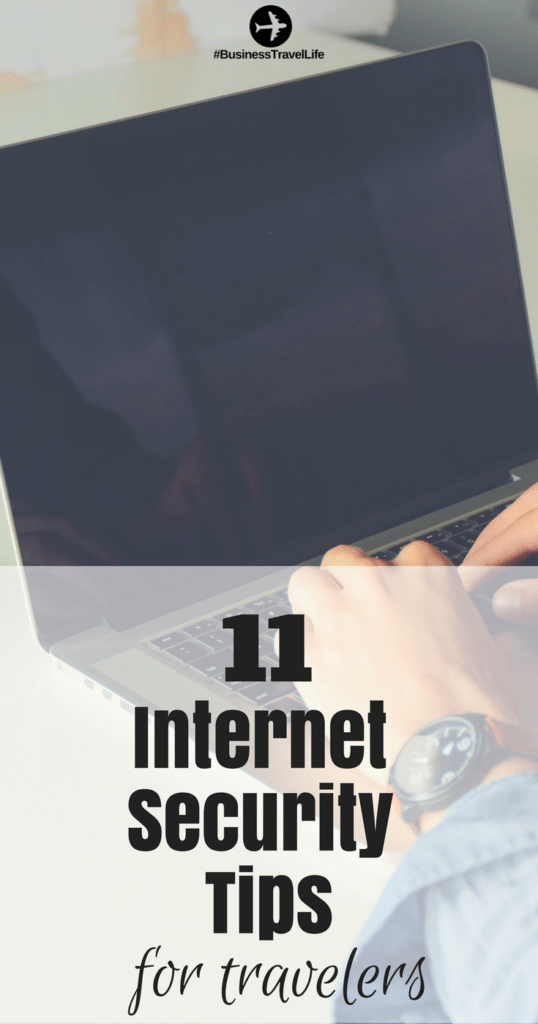Online Precautions to Take During Travel
Travelers often worry about flight delays, bad weather, and disappointing accommodations when thinking about the factors that could ruin a business trip. However, the lack of secure Internet access revealing social media posts and haphazard habits online can wreak havoc lasting long after beach tans fade away. SNDR™ CEO and security expert Shaun Murphy has created a series of tips business travelers can use to help keep their personal information and private files safe while away from home.
Prep Before You Go
Patch Up. Packing, printing airline tickets and organizing maps are not the only to-do list items that need to be tended to before a vacation begins. Check all devices staying at home or going on the trip for software updates. Not running system updates is like putting out the welcome mat for cyber criminals. Operating system security holes that could have easily been patched with a quick click can leave you vulnerable to hacks.
Remove Data. Backing up is always important, but before you travel it is essential. Removing unnecessary sensitive data from your devices going on the trip including photos, videos, financial documents and stored passwords can save you from heartache and headaches down the road if your devices are breached, stolen or misplaced.
Wipe Your History. Clear your browser cache files and remove saved passwords. If you accidentally connect to an unsecured Wi-Fi network while traveling do not make it effortless for criminals to steal your private information such as bank access, work emails or photos.
Fake It. Create temporary passwords for sites you plan on accessing while traveling. It is estimated that 60% of people use the same password, or a variation of one, for every account. If you get hacked while traveling, having a temporary “throwaway” password for email or social media will prevent a headache of worry over if your home accounts were compromised.
While Travelling
Pay Up. Avoid logging onto free Wi-Fi networks that are unsecure. If you do not have to ask a store or restaurant owner or employee for a password it isn’t worth saving a few dollars to check your email for free. It could end up costing you a lot more in the long run if a hacker has set up a benign looking “free” network that he or she is using to read everything on your computer.
Browse Safely. Make sure you are using a secured connection to websites when available. A simple “s” (https:// instead of http:// in your web browser’s URL bar) will protect you from most threats local and remote. The Electronic Frontier Foundation has created a utility that will automatically use a secure connection for you. Learn more about it at https://www.eff.org/Https-everywhere.
Double Down. Enable two-factor authentication on your important web services (email, social media, etc.) so in the event that someone does gain access to your passwords they need a second code to get in. Guidelines for setting up two-factor authentication can be found at http://www.google.com/landing/2step/.
Privatize Wi-Fi. For additional security when using a Wi-Fi network at a hotel or airport, consider using a VPN on your laptop. A VPN creates an encrypted connection to a third-party server, and all your Internet traffic is routed through that server. Snoopers on the network will only see encrypted data.
Share Wisely. While it is tempting to post about a vacation on social media or keep a blog about your adventures to stay in touch with family and friends, resist the urge. Every tidbit of information you publicly share online is a breadcrumb that criminals can use to piece together a snapshot of your life that can lead to them to cracking your passwords and hacking your digital accounts.
Shut Down. Switch off the wireless connection on your phone, tablet, and laptop when they are not in use. By keeping the connection off you are taking another step in protecting your digital identity, by preventing an opportunity for criminals to automatically connect to your device on an open network without you ever knowing what happened.
After Returning Home
Sweep Clean. Running a security sweep when you get home is a wise precaution. Check your computer and other devices for spyware, malware, and viruses. One indication that malware could be looking is an increase in memory use or data use that is otherwise inexplicable.
Thank you to SNDR for sharing these internet security tips for travelers. For more information about protecting your security and privacy online, visit www.sndr.com.
Business Travel Life
Business Travel Life is an online resource supporting the road warrior lifestyle. We give business travelers the tools they need to maintain their wellness and productivity when traveling. The topics we cover include business travel tips, travel workouts, healthy travel hacks, travel products, general travel tips, and industry trends. Our goal is to make business travel a healthier experience – and to make healthy travel practices more accessible to all road warriors.


I really appreciate the tips you gave in keeping your c computer and electronic devices safe while abroad, like making sure your software is updated prior to leaving. My husband and I are going abroad for a few weeks at the end of the year. Would you recommend getting internet security as well? Or would taking these steps suggested be enough?